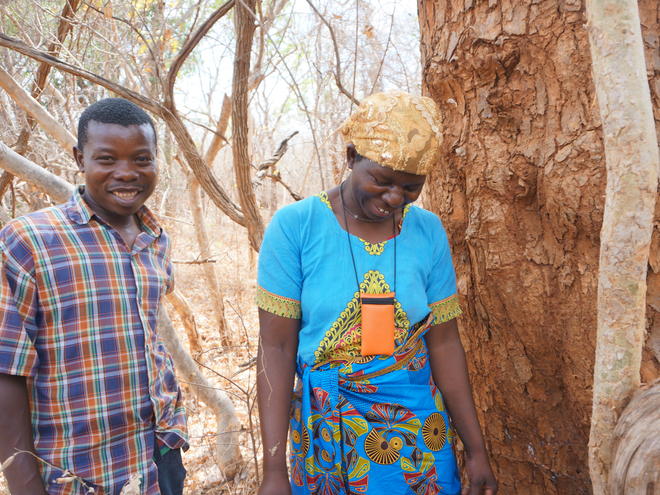
When his three daughters were hungry, Omary Mbunda would turn to illegal timber for money. For him and others in his village of Mbondo, Tanzania, the trees and wildlife in nearby Liuninga Forest Reserve were reliable sources of income and food.
That changed when the CARE-WWF Alliance—a partnership focused on creating food systems that better nourish vulnerable communities while supporting healthy ecosystems—began promoting sustainable forestry management and conservation agriculture in Mbondo in 2015. Mbunda’s neighbors elected him to participate in a local committee to conserve the surrounding landscape and its natural resources, including timber. Who better to protect the forest than someone who’s intimately familiar with illegal logging?
Mbunda began employing his deep knowledge of the Liuninga Forest to collaborate with village game scouts to apprehend illegal poachers and loggers.
“The CARE-WWF Alliance intervention in Mbondo village…gave us insights on forest conservation and its significance,” Mbunda said. “The forest brought us rain, water, as well as good breathing air. Together with the district council’s officials, [the Alliance] has strengthened our understanding on forests conservation and its benefits. Also, they taught us proper ways of harvesting timber and other forest products for relatively cheap prices, by getting proper licenses and permits.”
Now, rather than selling a single illegally harvested piece of timber for less than a quarter, the Village Natural Resources Committee selectively harvests whole trees—determined by a combination of the forest’s regeneration capacity, market demand, and economic value—to turn a greater profit.
With the support of the Alliance, illegal forest activities like unsustainable logging and poaching are far less tolerated. Villagers tend to comply with bylaws, procedures, and guidelines put forward in the forest management plan, and those who don’t face fines, permit fees, and confiscation of timber. The natural resources committee has collected several thousand dollars from violators, which they’ve used to purchase three bicycles to help village game scouts more effectively patrol the Liuninga Forest and larger wildlife management area and development priorities as determined by the community, including latrine construction and buying desks for Mbondo’s primary school.
When Mbunda turned away from illegal logging, he redoubled his farming efforts, formerly his secondary source of income. Alongside his wife, he now devotes himself to growing a mix of cash and staple crops to support his family, including maize, sorghum, sesame, and peas. He's also considering adopting climate-smart agricultural practices taught by the Alliance’s Farmer Field and Business School (FFBS) to increase their yields and incomes, reducing annual expansion into nearby forests. “Now I see the FFBS plot performing wonders, so am more convinced that I personally can do the same,” Mbunda said. “Without [the Alliance], our fragile natural resources would be in jeopardy [and] the future generation would not perhaps get a chance to see them.” Alliance interventions may serve as an important catalyst, but sustainable livelihoods and forest conservation are driven by the openness to change and hard work of people like Mbunda.
Learn more about the CARE-WWF Alliance.
Published March 21, 2018 at 05:00AM
No comments:
Post a Comment